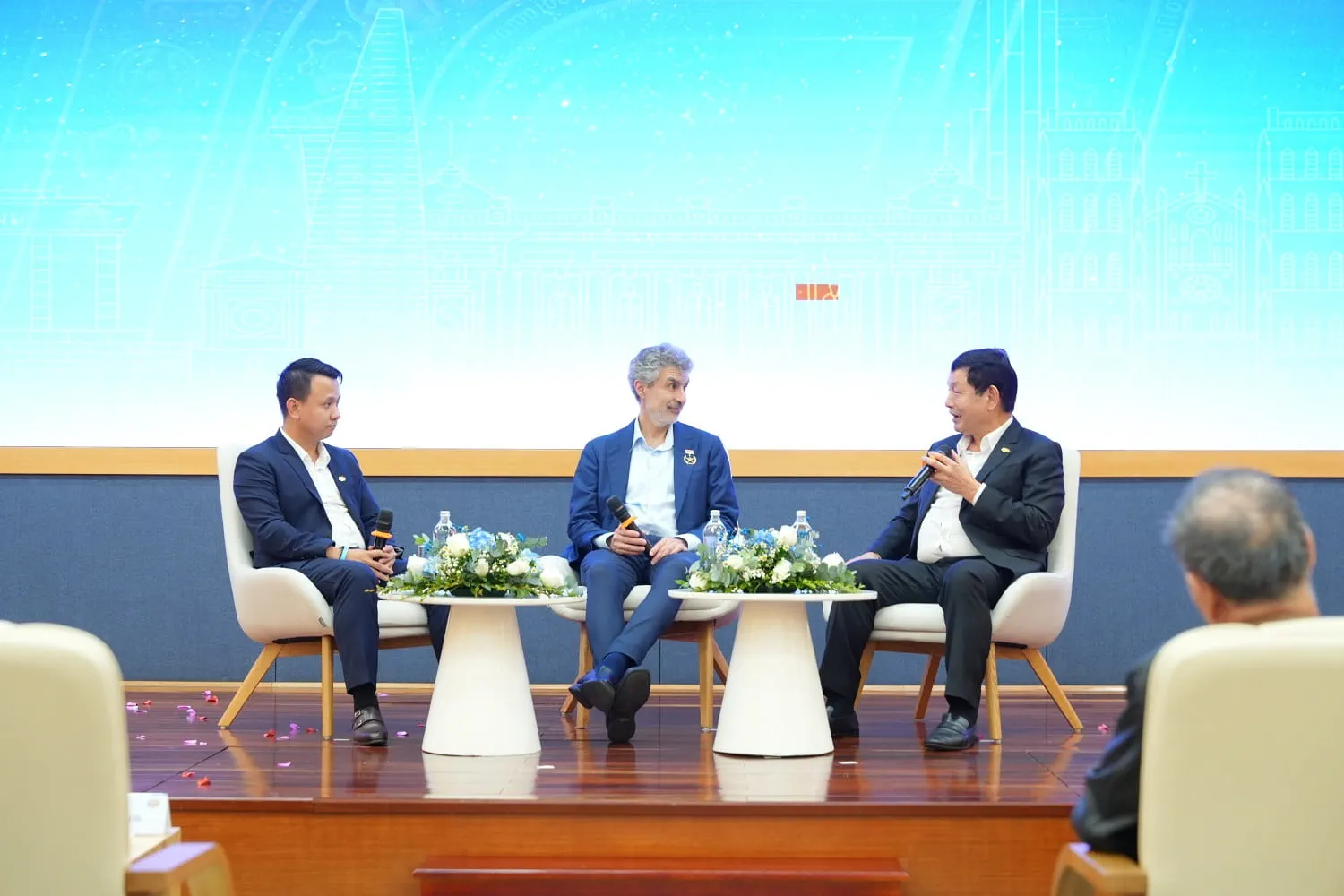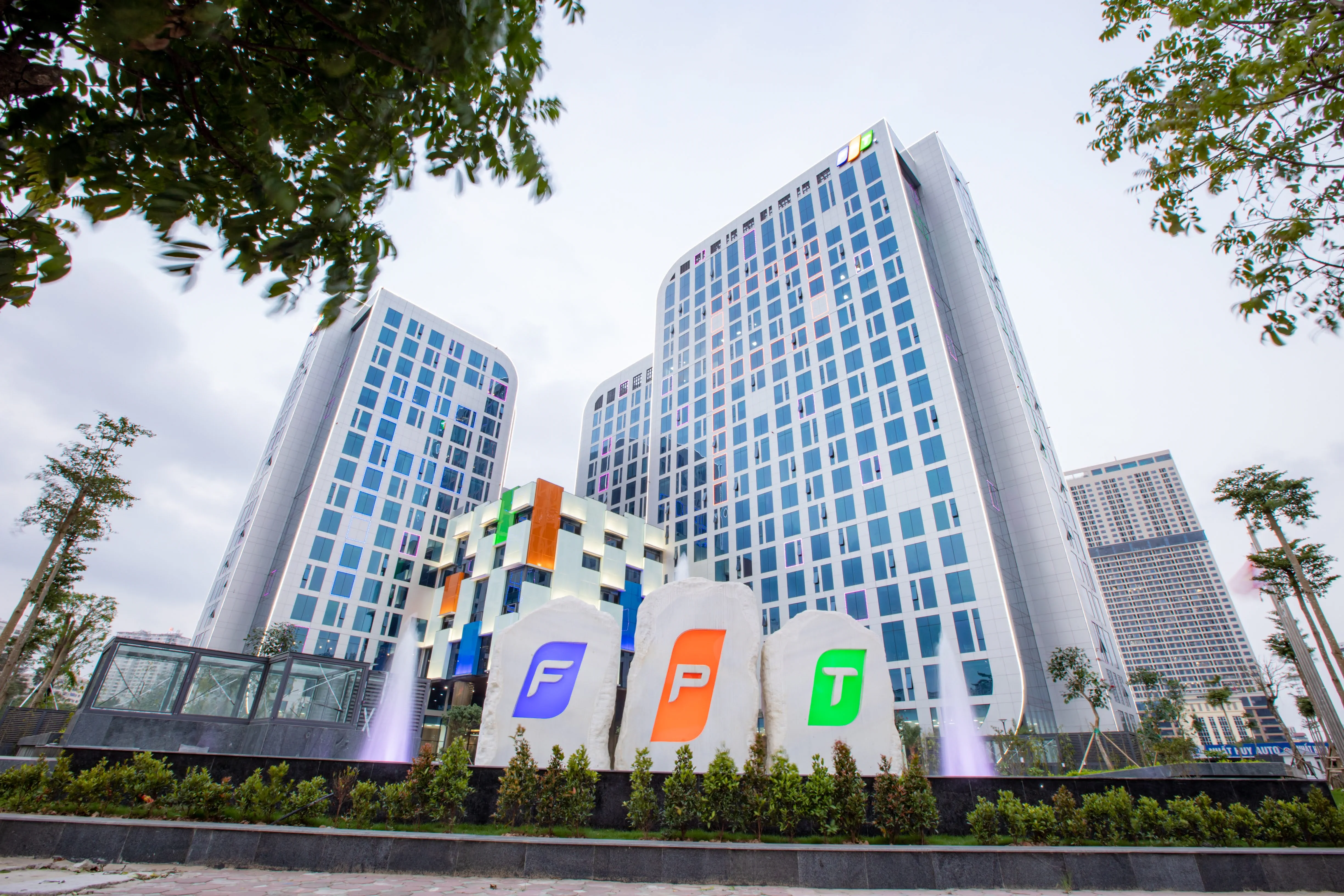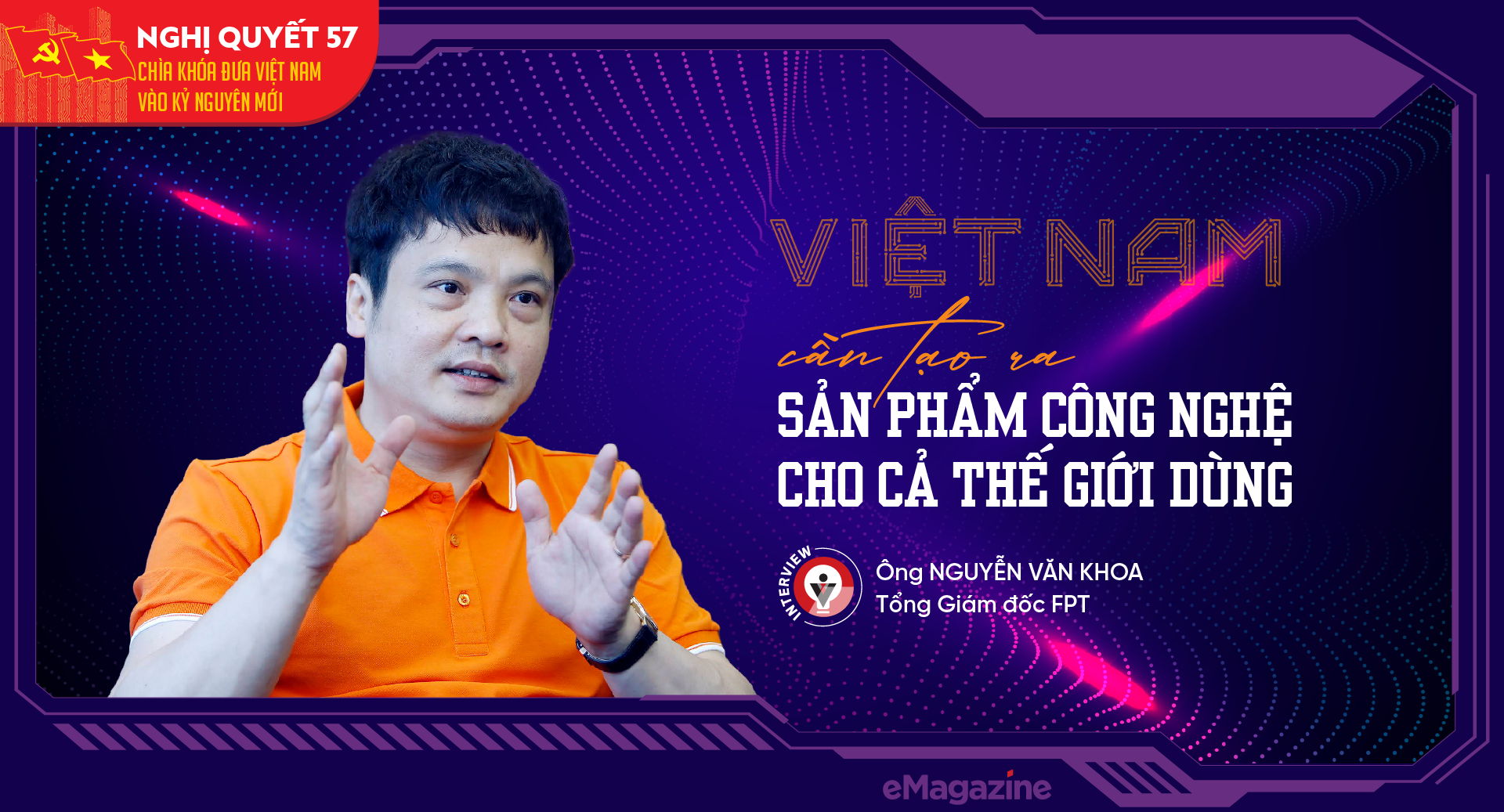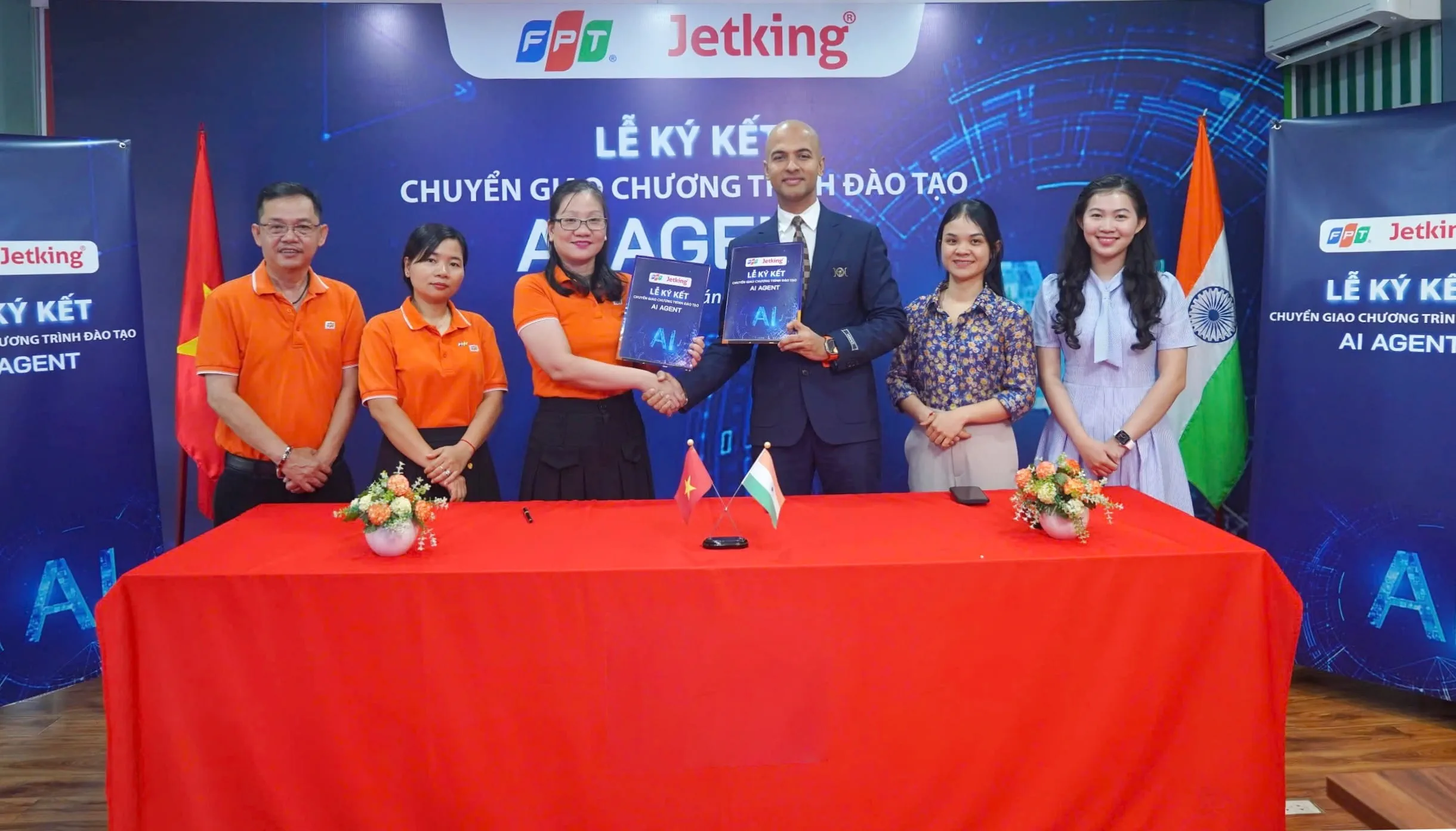When Professor Yoshua Bengio met Mr. Truong Gia Binh: A dialogue on AI and humanity's future
•
06/12/2024
The intersection of humans and AI has opened up unprecedented opportunities and challenges.
A special discussion took place on the afternoon of December 5 at FPT headquarters, following an inspiring speech by Professor Yoshua Bengio, founder of the Mila AI Research Institute.
Joining FPT Chairman Truong Gia Binh and Mr. Nguyen Xuan Phong, Director of FPT Software AI Center, the session provided a platform for technology and AI leaders to explore critical topics, including AI ethics and human responsibility in the digital age.

Discussion session on the afternoon of December 5 in Hanoi
At the start of the discussion, Mr. Truong Gia Binh shared: “Professor Yoshua is deeply concerned about AI safety and ethics. We spent 2.5 hours discussing this issue over lunch.” From this conversation, Mr. Binh highlighted the mission of the newly established AI Ethics Committee under VINASA's auspices.
According to him, AI ethics is not just a global concern but also a pressing local issue. "In Vietnam, raising awareness and spreading knowledge about AI is crucial," he emphasized, underscoring the community's role in understanding this technology's challenges.
However, Mr. Binh went beyond advocacy, stating, "Commitment and responsibility — that's the core purpose behind establishing the AI Ethics Committee."
A significant portion of the discussion centered on the potential risks of AI in military applications. Professor Bengio reflected on 2014 when AI transitioned from the lab to the commercial sector. Early uses like drones and automation quickly evolved into applications in sensitive areas such as defense.
“It all felt like science fiction back then,” he recalled. “But now, it’s present on the battlefield, though not fully autonomous yet.” The rising dangers posed by AI-driven weapons have prompted nations to negotiate limits on lethal autonomous systems.
Shifting to AI’s impact on employment, Mr. Truong Gia Binh offered a balanced yet hopeful perspective: “Today’s young people face a critical choice: Should they pursue careers in IT and AI or not?” He acknowledged widespread concerns about being replaced by AI but emphasized that this moment presents a significant opportunity.
“In the future, old jobs may vanish, but new roles will emerge with immense potential,” he stated. To capitalize on this shift, Mr. Binh advised young people to learn how AI works, master its applications, and leverage technological advancements to create meaningful change.
One of the most striking moments of the talk came when Professor Bengio recounted a Cold War-era incident. A false alarm nearly triggered the Soviet Union to launch a nuclear missile at the United States. However, one individual chose to defy protocol, trusting his intuition that the alert was a mistake.
"Millions of lives were saved by someone who thought carefully about the risks and put ethics above orders," he reflected before posing a critical question: "But if it were a robot, would we be so fortunate?"
This story underscores a pressing challenge: How can we ensure that AI systems act ethically, especially in life-or-death scenarios? According to Professor Bengio, this remains an unsolved problem.
Turning to education, both Professor Bengio and Mr. Truong Gia Binh agreed that AI literacy will be a defining factor for future success. Professor Bengio stressed the need for interdisciplinary learning: “Engineers and computer scientists must understand not only technology but also social sciences, ethics, philosophy, and law.” This approach, he explained, will enable them to grasp the societal impact of AI-driven decisions.
Mr. Binh shared his vision for a stronger Vietnam: "I will create AI-powered teachers. But that alone isn't enough. We will make learning more interactive — AI will question students, and students will challenge AI. Everyone will learn how to build a stronger Vietnam through this dynamic exchange."
A key concern raised during the discussion was how AI could disrupt democratic systems. Professor Bengio warned about the growing sophistication of deepfakes — fake videos and audio generated by AI — which seriously threaten public trust in online information. "We need to consider the societal impact: people may lose trust in what they read online, and the situation will worsen," he cautioned.
When asked whether AI should be tightly controlled or left free, Mr. Binh offered a balanced perspective: “AI is a superpower, and it should be harnessed to bring balance, helping people find equilibrium in life.”
Closing the discussion, Professor Bengio expressed his admiration for Vietnam's younger generation: "There is so much energy among young people here. We need that." He emphasized that humanity's most significant challenges will require contributions from the next generation to shape a better future.
Source: Vietnambiz




